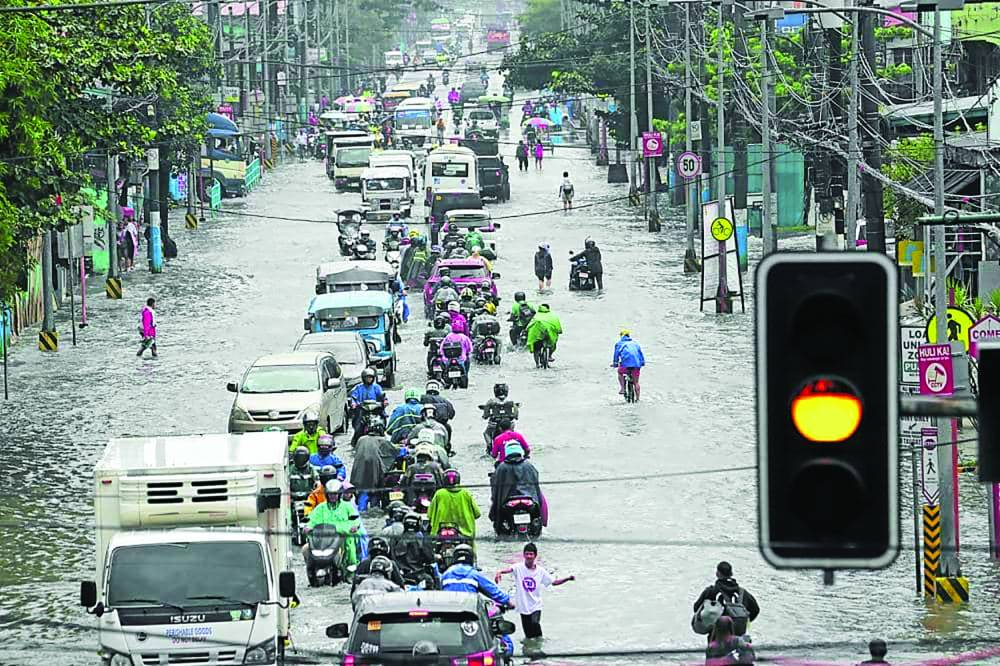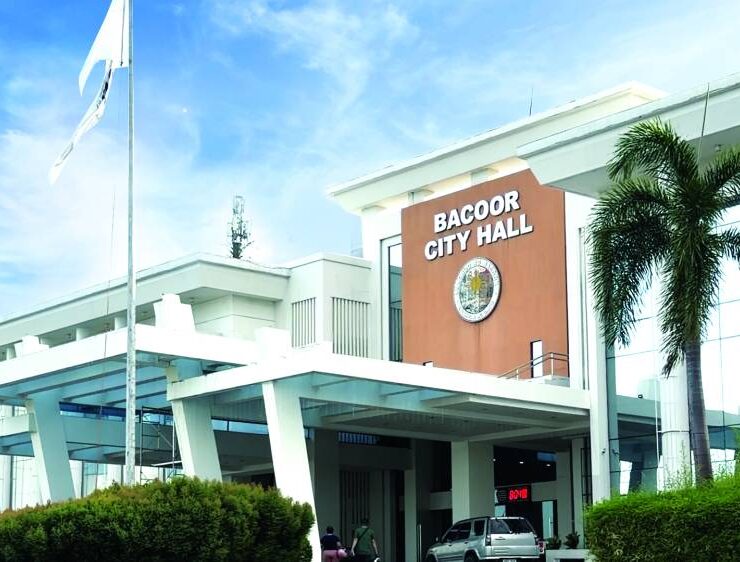Everything for a price

It seems everyone is mad about flooding these days.
And it goes beyond us being stuck in gridlock traffic when our roads turn into swimming pools – President Ferdinand Marcos Jr. was visibly irked last Friday when he inspected a botched P96.4-million dike-rehabilitation project in the town of Calumpit in Bulacan.
“It cannot be like this!” he said after seeing the crumbling concrete embankment along Pampanga River in Barangay Bulusan. “Unbelievable! This has been going on for years.”
The President said St. Timothy Construction Corp. would be made to answer for the severely damaged flood barrier, even though reports say that the project was fully completed. Meanwhile, the Commission on Audit has ordered a fraud probe for flood-control projects in Bulacan.
Meanwhile, Oriental Mindoro Governor Humerlito Dolor likewise blew a fuse while inspecting damaged dikes in his province. This included one in Barangay Mulawin in the town of Naujan, where a security guard initially refused to let him and his team enter the site without a written request from the Department of Public Works and Highways (DPWH).
They were eventually able to go inside, only the find that the dike was full of sand.
“Is this why you won’t let the Governor in because you’re hiding something?” he said in a Facebook post. “That’s the people’s blood and sweat.”
Heads did roll from this – DPWH Mimaropa dismissed a project engineer and other staff assigned to Naujan, while DPWH Secretary Manuel Bonoan said his agency would conduct an intensive audit on the damaged dikes in Oriental Mindoro.
Money, lives swept away
Heartening as it is to see some semblance of accountability being leveled against incompetent officials and contractors, these are just two examples of a problem that has beset the Philippines for decades.
It is an open secret that infrastructure projects have long been milking cows of the corrupt – the collusion of various government officials and private contractors (including a few fly-by-night outfits with hardly any capitalization) results in well-lined pockets, but at the cost of substandard construction materials that give way in our country’s increasingly more aggressive weather.
This is precisely why the proposed House of Representatives probe into anomalous flood-control projects is so absurd, such that House Majority Leader and presidential son Sandro Marcos backed a third-party investigation. Meanwhile, Malacanang has rolled out a website where the public can report on issues surrounding flood-control projects.
And while the money being pilfered is huge, so are the social costs that we taxpayers unwillingly shoulder – global professional services company GHD said in 2022 that the Philippines stands to lose $124 billion (around P780 billion as of press time) until 2050 from water-related disasters like floods and storms.
Statista also noted that the country incurred P43 billion in damage in 2024 from natural disasters. And lest we forget, these floods kill and injure countless Filipinos every year – the costs to our healthcare system, along with the grief and heartbreak to the loved ones they leave behind, seem almost incomprehensible.
Go private?
The long-overdue opening of this watery Pandora’s Box has at least brought forward some interesting proposals.
Billionaire Ramon Ang, who helms the blue-chip San Miguel Corporation (SMC), has offered earlier this month to reduce flooding at zero cost to the government. The support he proffered includes drainage construction, clearing operations, and building houses and schools away from waterways.
Such initiatives are similar to the cleanup work that SMC has been doing ahead of the construction of its controversial Pasig River Expressway, a six-lane, 19-kilometer elevated toll road that would run along the banks of the notoriously polluted Pasig River. The company is also working on infrastructure to support the forthcoming New Manila International Airport in the flood-prone Bulacan province.
Although it is encouraging that the private sector is willing to step up to take on the country’s perennial flooding problem, this will certainly come at a price that is on top of the taxes that we are already forced to fork over (although some still don’t). It defeats the purpose of a government, which is supposed to provide durable infrastructure with no return on investment.
And if the government will just bank of private companies to their job, what on Earth is the point of paying them anything in the first place?





















